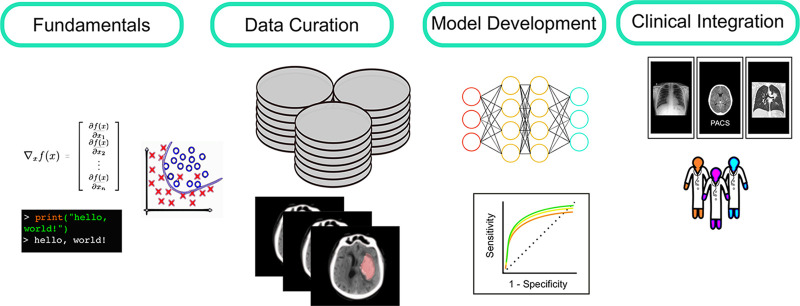Figure 2:
Overview of learning tasks in the Data Science Pathway (DSP). Fundamentals: Trainees begin with individualized learning plans to build foundational knowledge, including formal and informal study of relevant mathematics, coding, and AI-ML theory. Data curation: Trainees are heavily involved in cohort selection, data cleaning, and imaging annotation throughout the DSP. Model development: Trainees collaborate with data scientists to design and test algorithms with definable clinical end points and play a critical role in performance analysis and quality assessment. Clinical integration: As clinical personnel, DSP trainees contribute to user-interface development and orchestrate scenario-testing and workflow simulation prior to model deployment. Finally, they assess the impact of AI once translated into clinical systems at the point-of-care.

